Speakers
 Sally L. Baxter, MD, MSc
Sally L. Baxter, MD, MSc
Assistant Professor, Ophthalmology and Biomedical Informatics
University of California San Diego
San Diego, Calif.
Sally L. Baxter is a physician and informaticist integrating comprehensive ophthalmic care with research investigation in big data, artificial intelligence and health information technology systems. Baxter's research interests involve using data from electronic health records and imaging tests to enhance clinical outcomes using traditional statistical methods as well as machine learning and artificial intelligence. She is innovating ways of incorporating digital health technology into patient care. She is also passionate about education, having served as chief resident at the Shiley Eye Institute and being involved in education and training of undergraduate students, graduate students, medical students, residents and fellows.
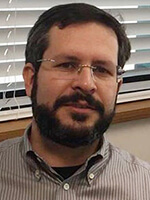 Pedro Carlos Carricondo, MD, PhD
Pedro Carlos Carricondo, MD, PhD
Director, Eye Emergency Department
Chief, Cataract Sector and Residency Program Vice Coordinator
University of Sao Paulo
Sao Paulo, Brazil
Pedro Carricondo is an ophthalmologist at University of Sao Paulo. He serves as Emergency Department Director, Chief of Cataract Sector and Residency Program Vice Coordinator. He is founder of the Geek Vision Innovation Group. He also is part of the Retina and Vitreous Sector. His interests include resident training, Ocular trauma, nanophthalmos, complicated cataract, intraocular lens and surgical techniques both in retina and cataract.
 Michael F. Chiang, MD
Michael F. Chiang, MD
Director, National Eye Institute
National Insitutes of Health
Bethesda, Md.
Michael F. Chiang became director of the National Eye Institute at the National Institues of Health (NIH) in November 2020, Prior to that, he was Knowles Professor of Ophthalmology and Medical Informatics & Clinical Epidemiology at Oregon Health & Science University (OHSU), and associate director of the OHSU Casey Eye Institute. His clinical practice focuses on pediatric ophthalmology and strabismus. His research interests include telehealth, artificial intelligence, clinical information systems and big data. Chiang is principal investigator of the collaborative NIH- and NSF-funded Imaging and Informatics in Retinopathy of Prematurity (i-ROP) group, which has developed a software assistive diagnostic device that has received FDA Breakthrough Status.
 Todd Durham, PhD
Todd Durham, PhD
Vice President, Clinical & Outcomes Research
Foundation Fighting Blindness
Raleigh, N.C.
Todd Durham has training in biostatistics and decision science/outcomes research and is an experienced drug developer with over 24 years of experience in early clinical, late clinical and post-marketing research. He has been involved in numerous successful new drug applications (NDAs), advisory committees and has significant experience interacting with the US FDA. Durham has contributed to a number of peer-reviewed articles (both clinical and statistical) and is the co-author of two books, Introduction to Statistics in Pharmaceutical Clinical Trials (Pharmaceutical Press, 2008) and Integrated Cardiac Safety: Assessment Methodologies for Noncardiac Drugs in Discovery, Development and Postmarketing Surveillance (Wiley, 2008). Durham is a member of the American Statistical Association. He was a doctoral fellow with Bristol Myers Squibb, an independent statistical consultant and previously employed by Axio Research, Inspire Pharmaceuticals, Quintiles, IQVIA and Novan.
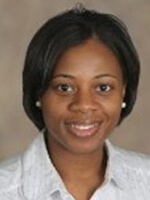 Angela R. Elam, MD
Angela R. Elam, MD
Clinical Assistant Professor, Ophthalmology and Visual Sciences
Kellogg Eye Center
Michigan Medicine
Ann Arbor, Mich.
Angela R. Elam is a clinical assistant professor of Ophthalmology and Visual Sciences at the University of Michigan Kellogg Eye Center. Her research includes disparities in eye care, eye care utilization and health services.
 Paul Foster, FRCS(Ed), FRCOphth, FRCS(Eng)
Paul Foster, FRCS(Ed), FRCOphth, FRCS(Eng)
Professor, Glaucoma Studies & Ophthalmic Epidemiology
UCL Institute of Ophthalmology
Faculty of Brain Sciences
Consultant Ophthalmic Surgeon
Moorfields Eye Hospital
London, England, United Kingdom
Paul Foster is professor of Ophthalmic Epidemiology and Glaucoma Studies at Moorfields Eye Hospital and University College London. He has led two major ophthalmic epidemiology studies in the UK drawing on the EPIC Norfolk cohort (n = 9,623) and UK Biobank (n = 117,175 at baseline). A UK-wide consortium (85 members, 22 centres) was formed to develop the UK Biobank resource and carry out analyses using this resource. Foster has authored 260 research publications. The UK Biobank Eye and Vision Consortium has published 51 peer-reviewed manuscripts.
 Tina Hernandez-Boussard, PhD, MPH, FACMI
Tina Hernandez-Boussard, PhD, MPH, FACMI
Associate Professor, Medicine (Biomedical Informatics), Biomedical Data Science and Surgery
Stanford University School of Medicine
Palo Alto, Calif.
Tina Hernandez-Boussard is an associate professor in Medicine (Biomedical Informatics), Biomedical Data Science and Surgery at the Stanford University School of Medicine. Her background and expertise is in the field of clinical informatics, with concentration in population health and health policy. A key focus of her research is the use of artificial intelligence to develop more precise treatment approaches that maximize benefits and minimize risks and using these advanced methodologies to guide optimal health services.
 Tyler Hyungtaek Rim, MD, MBA, PhD
Tyler Hyungtaek Rim, MD, MBA, PhD
Clinician Scientist
Singapore Eye Research Institute (SERI) and Singapore National Eye Centre (SNEC)
Assistant Professor
Ophthalmology & Visual Sciences Academic Clinical Programme, Duke-NUS Medical School
Singapore
Tyler Hyungtaek Rim is currently a clinician scientist in Singapore Eye Research Institute (SERI) and Singapore National Eye Centre (SNEC) and an assistant professor at Duke-NUS Medical School in Singapore. Previously, he was an assistant professor of ophthalmology at Severance Hospital, Yonsei University College of Medicine, Seoul, Korea. He specializes in retinal surgery and treats patients with retinal disorders. His research area is focused on data science, including conventional statistics, epidemiology, big data analytics and machine learning in the field of ophthalmology. He is also the co-founder of a medical artificial intelligence startup, Medi Whale Inc., where he and his team developed a new cardiovascular risk stratification based on retinal photographs.
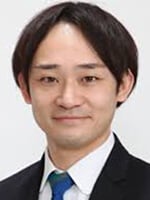 Takenori Inomata, MD, PhD, MBA
Takenori Inomata, MD, PhD, MBA
Associate Professor, Department of Ophthalmology and Department of Digital Medicine
Juntendo University Faculty of Medicine
Tokyo, Japan
Inomata Takenori is an associate professor in the Department of Ophthalmology and Department of Digital Medicine, Juntendo University Graduate School of Medicine, Tokyo, Japan. In 2015, he completed his MBA degree from Boston University Questrom School of Business, while researching ocular immunology at Massachusetts Eye & Ear infirmary, Schepens Eye Research Institute. In November 2015, he returned to Japan and has been actively involved in clinical practice, research, education, and hospital management. His area of expertise is in corneal transplantation immunology, dry eye disease and mobile health, with his current research focusing on big data-driven multi-omics analysis and mobile health. In 2020, he organized a new department in Juntendo University, Department of Digital Medicine, where he is conducting a crowdsourced research on dry eye disease and hay fever using an in-house smartphone app.
 Pearse A. Keane, MD, FRCOphth
Pearse A. Keane, MD, FRCOphth
UCL Institute of Ophthalmology
Faculty of Brain Sciences
London, England, United Kingdom
Pearse A. Keane specializes in applied ophthalmic research, with a particular interest in retinal imaging and new technologies. In 2016, he initiated a formal collaboration between Moorfields Eye Hospital and Google DeepMind, with the aim of applying machine learning to automated diagnosis of optical coherence tomography (OCT) images. The first results of this collaboration were published in August 2018 in the journal, Nature Medicine.
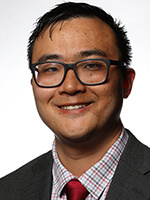 Aaron Y. Lee, MD, MSCI
Aaron Y. Lee, MD, MSCI
Assistant Professor, Department of Ophthalmology
UW Medicine
University of Washington
Seattle, Wash.
Aaron Y. Lee is an assistant professor and vitreoretinal surgeon at the University of Washington's Department of Ophthalmology. He completed his undergraduate degree at Harvard University and his medical training at Washington University in St Louis. He co-chairs the American Academy of Ophthalmology Medical Information Technology Committee. He currently serves as an associate editor for Translational Vision Science and Technology and on the editorial Board for the American Journal of Ophthalmology and Nature Scientific Reports. He has published 78 peer reviewed manuscripts and is known as a leader in the field of artificial intelligence and ophthalmology. Lee's research is focused on the translation of novel computation techniques in machine learning to uncover new disease associations and mechanisms from routine clinical data including electronic health records and imaging.
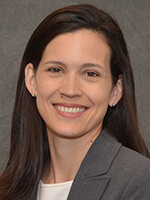 Alice C. Lorch, MD, MPH
Alice C. Lorch, MD, MPH
Director, Residency Training Program, Department of Ophthalmology
Assistant Professor of Ophthalmology
Harvard Medical School
Associate Chief for Quality for the Department of Ophthalmology
Mass. Eye and Ear
Boston, Mass.
Alice C. Lorch is a comprehensive ophthalmologist at Massachusetts Eye and Ear where she is also the program director for the Harvard Ophthalmology Residency Program, the co-director of the Ophthalmic Telemedicine Fellowship and the associate chief for Quality in Ophthalmology. Her research interests include quality reporting, patient reported outcome measures and tele-ophthalmology. She is the co-PI for the Massachusetts Eye and Ear IRIS Registry Data Analytics Team.
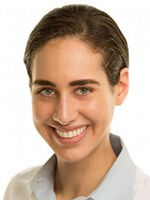 Suzann Pershing, MD
Suzann Pershing, MD
Assistant Professor, Ophthalmology
Stanford University
Chief of Ophthalmology, Palo Alto Veteran's Affairs Health Care System
Palo Alto, Calif.
Suzann Pershing is on the ophthalmology faculty at Stanford University School of Medicine, with an academic career blending clinical practice, teaching, research and administration. Her research interests focus on improved utilization of big data, biomedical informatics techniques and evidence-based medicine to study outcomes, health care utilization, disease progression and cost-effectiveness of ophthalmic treatment. Pershing is active in big data initiatives and analysis, including collaborative projects at Stanford and serving as site PI for the American Academy of Ophthalmology (AAO) IRIS Registry analytic group at Stanford. She also serves as the AAO representative to the American Board of Medical Specialties task force on Information and Data Sharing, focusing on collaboration among specialty boards and societies to use data sources such as national clinical registries to facilitate improved quality of care, continuing certification and practice and outcomes assessments.
 Joshua D. Stein MD, MS
Joshua D. Stein MD, MS
Edward T. and Ellen K. Dryer Career Development Professor in Ophthalmology and Visual Sciences
Associate Professor, Ophthalmology and Visual Sciences
Kellogg Eye Center
Michigan Medicine
Ann Arbor, Mich.
Joshua Stein is a health services researcher who taps into various sources of Big Data to study topics such as the epidemiology of ocular diseases, access to and utilization of eye care services, disparities and inequities in receipt of eye care services by race, affluence, geography and other factors, risk factors associated with ocular diseases and outcomes of ocular surgeries. He also has expertise developing machine learning algorithms to predict disease trajectory for patients with chronic ocular diseases such as glaucoma. Stein is the principal investigator of the Sight Outcomes Research Collaborative (SOURCE), a consortium of academic ophthalmology departments who are sharing de-identified electronic health record data of patients with ocular diseases and those undergoing ocular diagnostic testing. He and his team aggregate, clean and make this rich source of data available to researchers in the consortium so they can use it for research and quality improvement projects.
 Brian C. Stagg, MD
Brian C. Stagg, MD
Assistant Professor
Ophthalmology/Visual Sciences
John A. Moran Eye Center
Health University of Utah
Salt Lake City, Utah
Brian C. Stagg specializes in the diagnosis and treatment of glaucoma. He also performs cataract surgery and has a special interest in geriatric ophthalmology. His research focuses on using modern technology to personalize glaucoma care to ensure that each patient gets appropriate treatment. Honors include acceptance into the University of Utah's Vice President's Clinical & Translational (VPCAT) Research Scholars Program.
 Daniel S.W. Ting, MD, PhD
Daniel S.W. Ting, MD, PhD
Assistant Professor, Ophthalmology & Visual Sciences Academic Clinical Programme
SingHealth Duke-NUS
Singapore, Singapore
Daniel Ting is the Consultant Vitreo-retinal surgeon in the Singapore National Eye Center (SNEC), Head of AI and Digital Innovation in Singapore Eye Research Institute (SERI), and the Assistant Professor in Ophthalmology with Duke-NUS Medical School Singapore. To date, he has published >180 peer-reviewed papers/book chapters/conference abstracts, including >40 AI and digital technology articles. He holds several patents in deep learning systems for medical imaging analysis, one of which has received approval from the Singapore Health Service Authority (HSA), and European CE Mark. He is also the co-founder of an AI spin-off company, EyRIS Pte Ltd, that has partnered with >20 optometry practices of Singapore Optometry Association thus far. Dr. Ting has won many prestigious scientific awards, including, but not limited to the ARVO Bert Glaser Award for Innovative Research in Retina (2020), USA Macula Society Evangelos Gragoudas Award (2019), Asia-Pacific Academy of Ophthalmology (APAO) Young Ophthalmologist's Award (2018). In December 2019, he was also rated as one of the 4 thought leaders by The Ophthalmologist, one of the top London-based eye magazines, in the deep learning fields for ophthalmology. His current research interest spans across AI, big data analytics, Internet of Things, Blockchain and AI chatbot using natural language processing and speech recognition.
 Adnan Tufail, BM BS, MD, FRCOphth
Adnan Tufail, BM BS, MD, FRCOphth
Consultant Ophthalmologist
Moorfields Eye Hospital
London, England, United Kingdom
Dr. Adnan Tufail is a Consultant Ophthalmologist at Moorfields Eye Hospital, London and Professor of Ophthalmology, Institute of Ophthalmology, University College London. Dr. Tufail undertook his ophthalmology training and medical retina fellowship at Moorfields Eye Hospital. He undertook research in uveitis at the Jules Stein Eye Hospital in Los Angeles, as well as completing a higher research degree during this time. Dr. Tufail has diverse research interest from lab/translational medicine in retinal disease, to clinical trials, retinal imaging and big data and machine learning. He led the first RCT for Avastin therapy and the first independent study to validate available AI algorithm to detect diabetic eye disease. He is deputy lead of the Macustar consortium for the validation of endpoints for dry AMD. He cofounded the SIG at ARVO on Big Data. He is part of a Retina Research Group at UCL that brings to together vascular biologists, clinicians, and data scientists to improve our understanding of retinal disorders.
 Brian L. VanderBeek, MD, MPH, MSCE
Brian L. VanderBeek, MD, MPH, MSCE
Assistant Professor of Ophthalmology
Scheie Eye Institute
Perelman School of Medicine
University of Pennsylvania
Philadelphia, Pa.
Brian L. VanderBeek received his Medical Doctorate from the University of Cincinnati after obtaining his Master of Public Health from the University of Michigan's School of Public Health. He completed his residency training in ophthalmology at the New York Presbyterian Hospital Weill Cornell Medical School prior to his fellowship in vitreoretinal surgery at the University of Michigan's Kellogg Eye Center. After joining the faculty at the University of Pennsylvania, VanderBeek continued his education obtaining a Master of Science in Clinical Epidemiology through the school's Center for Clinical Epidemiology and Biostatistics.
 Elizabeth Vanner, PhD
Elizabeth Vanner, PhD
Director of Biostatistics
Bascom Palmer Eye Institute
Miller School of Medicine
University of Miami
Miami, Fla.
Elizabeth Vanner received a bachelor's degree cum laude from Harvard College with a major in Biochemical Sciences. After working for a year at the Children's Hospital Medical Center in Boston, she earned a joint Master of Science degree in Health Policy & Management and Biostatistics at the Harvard School of Public Health. Vanner earned a PhD in Population Health and Clinical Outcomes Research from the Stony Brook University's Department of Preventive Medicine, School of Medicine, in May 2013. Vanner is a recipient of the 2018 RPB/AAO (Research to Prevent Blindness/American Academy of Ophthalmology) Award for IRIS (Intelligent Research In Sight) Registry Research.
 Sophia Ying Wang, MD
Sophia Ying Wang, MD
Assistant Professor, Ophthalmology
Department of Biomedical Data Science, MS candidate
Stanford University
Palo Alto, Calif.
Sophia Ying Wang uses and integrates a wide variety of data sources in her research, spanning both structured and unstructured forms, including national survey datasets, health insurance claims data, patient generated online text, surgical video and electronic health records. She investigates outcomes of treatments for glaucoma and cataract, as well as other areas of ophthalmology. Her focus is developing and applying novel methods for automated extraction of ophthalmic data, especially from free text and video.
